Highlights from Announcements 3/4/19
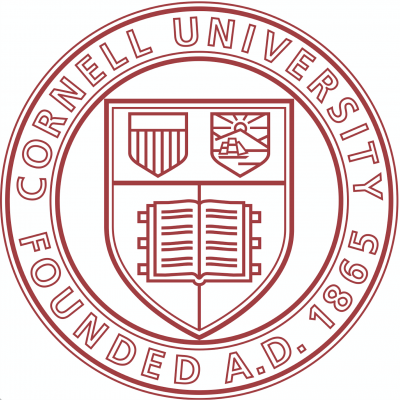
Important Policy Update: Cornell Consensual Relationships Policy
Cornell believes that every student and postdoc should have the freedom to pursue their academic and professional interests in an environment without preferential or unfair treatment, discrimination, or bias. In addition, we believe that romantic or sexual relationships between instructors and students can jeopardize the integrity of that mission for the individuals involved and also for those around them.
President Pollack accepted the Consensual Relationship Policy Committee’s recommendation in May of 2018, paving the way for the policy to be issued as interim. The formal review process was completed and Policy 6.3 Consensual Relationships was announced with minor revisions on December 21st, 2018. The Policy prohibits romantic or sexual relationships between faculty members, or others in positions of authority, and students and post-graduates under the following provisions:
Provision 1
Any member of the Cornell community who has, or has had, a sexual or romantic relationship with a student or postgraduate is prohibited from exercising academic or professional authority over that student or postgraduate.
Provision 2
Sexual or romantic relationships between faculty members and undergraduate students are strictly prohibited regardless of the department, school, or college affiliation of either party.
Provision 3
Sexual or romantic relationships are prohibited whenever a faculty member or other individual holds a position of authority over the student or postgraduate or is likely to do so in the foreseeable future.
In addition, prompt disclosure is required in a number of circumstances, including in certain cases where the consensual relationships are not prohibited. it is important to become familiar with Policy 6.3 and evolving Frequently Asked Questions about it, or to call Academic HR (607) 255-4735 acadhr_reporting@cornell.edu if you have questions.
You may also use the online tool to Disclose or Report Consensual Relationships described in this policy.
More Information: Power Analysis as it Relates to our Consensual Relationships
Thursday, March 14 | 12:30-1:30 pm | Lunch at 12:15 | 102 Mann Library | RSVP
This session will allow for an in-depth discussion about the various consensual relationships that graduate students may have and to talk about elements of power inherent in them. Through a series of case studies, participants will have a purposeful and frank discussion about the complexities and realities of power differentials in interpersonal relationships and how this intersects with both personal and professional relationships. In light of the recently revised CU Consensual Relationship Policy, this session will initiate a conversation about how graduate students may interact with this policy.
America is Shutting Its Doors to Some of the World’s Best Young Minds
Opinion Editorial by Cornell President Martha Pollack, CNN 3/4/19

When I became president of Cornell University, I inherited leadership of one of the great institutions of American higher education.
Cornell was founded on a principle both simple and revolutionary: We are “an institution where any person can find instruction in any study.” Not every person — an impossibility on any campus bound by finite resources — but any person, no matter their race, gender, religion, or nationality. That idea, articulated so clearly over a century and a half ago, mirrors in its ambition the early philosophy of our nation: When the door is open to all, we all thrive.
As the national debate over immigration swirls on, we are at risk of losing sight of that foundational ideal. On America’s campuses, a tightening net of government regulations is increasingly excluding some of the young minds our country needs most — a trend that endangers our ability as a nation to innovate and compete.
Across the country, according to the Institute of International Education, over one million international undergraduate and graduate students make essential contributions to research, to technology development, and to our ability to educate the next generation of citizens for a complex world. They also contribute nearly $39 billion to the United States economy, creating or supporting over 455,000 jobs.
Read the full CNN opinion editorial
August Offers Mentoring Advice
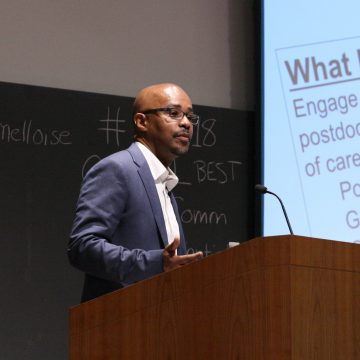 Research shows that students with strong mentoring relationships leave graduate school more satisfied with their programs, more involved in professional organizations, and with a more developed professional identity than those who do not, according to an American Psychological Association article. So when graduate students face conflicts with their mentors, it can make navigating their programs and next steps even more challenging.
Research shows that students with strong mentoring relationships leave graduate school more satisfied with their programs, more involved in professional organizations, and with a more developed professional identity than those who do not, according to an American Psychological Association article. So when graduate students face conflicts with their mentors, it can make navigating their programs and next steps even more challenging.
During the third lecture in the Maximizing Your Mentoring series on Feb. 15, Professor of Immunology and Vice Provost for Academic Affairs Avery August, Ph.D. ’94 gave students and postdocs advice for remedying conflict in the form of four steps: acknowledge, diagnose, prepare, converse.
Read the full mentoring story or see event tips and takeaways
Doctoral Experience Survey: Participation Requested
Doctoral Students: Please Respond to the Doctoral Experience Survey to Help the Graduate School Improve the Graduate Student Experience
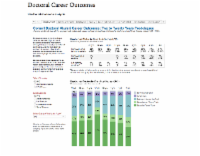 Once every two years, doctoral students are invited to complete a survey to help the Graduate School learn more about the doctoral student experience, particularly what influences success and what obstacles students face. Now is that time! The biennial Doctoral Experience Survey provides an opportunity for doctoral students to share, in a confidential format, their perceptions and experiences related to academics, advising, assistantships, professional development, campus climate, career planning, university resources, and wellbeing.
Once every two years, doctoral students are invited to complete a survey to help the Graduate School learn more about the doctoral student experience, particularly what influences success and what obstacles students face. Now is that time! The biennial Doctoral Experience Survey provides an opportunity for doctoral students to share, in a confidential format, their perceptions and experiences related to academics, advising, assistantships, professional development, campus climate, career planning, university resources, and wellbeing.
The Graduate School is inviting participation from doctoral students active in a program, with an enrollment of at least four semesters and an expected graduation date after January 2019. Invitations (each with a unique link to the survey) have already been emailed to eligible students. If you received an invitation but did not respond, you’ll receive just a few reminder emails before the survey closes on March 19.
If you receive a survey invitation, please take the time to reply! A broad response is critical to ensure that the results that are truly representative. As bonus, every 10th student completing the survey receives a $10 e-gift certificate.
Michał Matejczuk Named a 2019-20 Luce Scholar
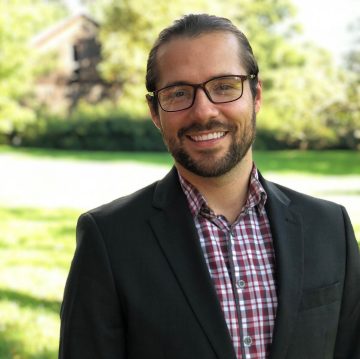
Starting this summer, Michał Matejczuk will spend a year working on international development in Asia as one of 18 Luce Scholars selected for 2019-20 by the Henry Luce Foundation. He is the fifth Cornellian to be named a Luce scholar since 2007.
Matejczuk is working toward a Master of Professional Studies degree in global development in the field of international agriculture and rural development, and is a graduate assistant at Cornell’s Institute for African Development. He aspires to improve household nutrition models in the agricultural industry in sub-Saharan Africa and South Asia. Employing food preservation methods during dry seasons, these models can help combat global food insecurity and child malnutrition.
Read the full Luce Scholar story
Mellon-Funded Rural Humanities Initiative Launches
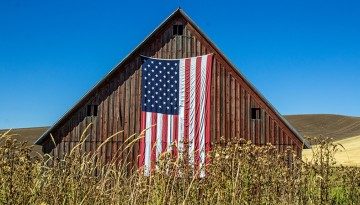 The complex dynamics between rural and urban life have profound implications for America’s future, from the economy to the environment and beyond.
The complex dynamics between rural and urban life have profound implications for America’s future, from the economy to the environment and beyond.
A new Rural Humanities scholarly initiative, funded for four years by a million-dollar grant from The Andrew W. Mellon Foundation, will leverage Cornell’s position in central New York to reinvigorate thinking about – and active engagement with – rural communities and landscapes. The initiative will emphasize one of Cornell’s founding principles – “knowledge with a public purpose.”
Read the full rural humanities initiative story
Student Spotlight: Remy Barnes
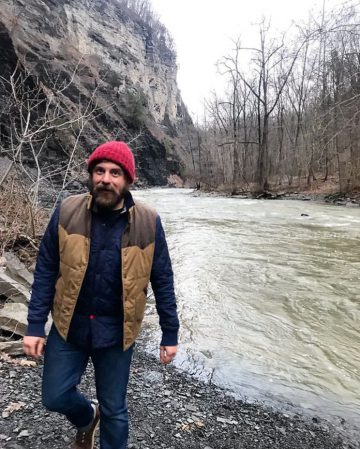 Remy Barnes is a master of fine arts student from Tallahassee, Florida. After earning his undergraduate degree at the University of Texas at Austin, he came to Cornell to pursue an M.F.A. in fiction.
Remy Barnes is a master of fine arts student from Tallahassee, Florida. After earning his undergraduate degree at the University of Texas at Austin, he came to Cornell to pursue an M.F.A. in fiction.
Read the full student spotlight
Interested in what other graduate students are doing both on and off campus?
Check out our student spotlights, Q&As with current students about their research, hobbies, and experiences at Cornell.
Graduate Student Research
 Larissa Osterbaan: unraveling the genetic mysteries of grapevine disease
Larissa Osterbaan: unraveling the genetic mysteries of grapevine disease
Larissa Osterbaan is a sixth year doctoral student in the School of Integrative Plant Science studying grapevine fanleaf virus and its potential impact on the wine and grape industry under the guidance of professor Marc Fuchs at Cornell AgriTech.

